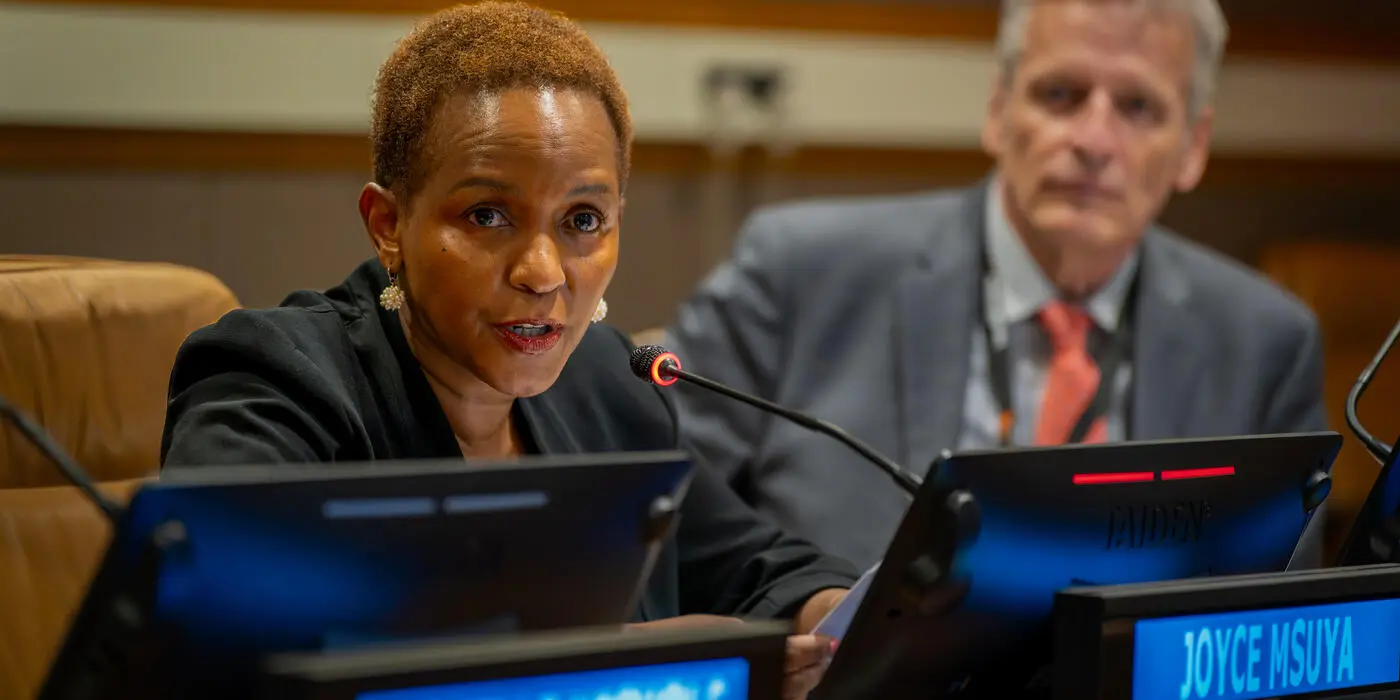The climate crisis and the humanitarian crisis are “two in one,” said Emeline Siale Ilolahia, Executive Director of the Pacific Islands Association of Non-Governmental Organisations(PIANGO), speaking to United Nations Office for the Coordination of Humanitarian Affairs (OCHA) on the sidelines of UN Economic and Social Council’s(ECOSOC) Humanitarian Affairs Segment (HAS).
“We need to continue making the connections,” she said. But she also warned that if the humanitarian component isn’t brought to the forefront of development, “we might lose,” with climate change becoming an even bigger “conversation” than it already is.
Ilolahia noted that the conversations regarding who will be affected by the climate crisis have long evolved from focusing on marginalised communities, as everyone is now vulnerable.
Ilolahia was a panellist at the ECOSOC HAS discussion “Addressing the adverse impacts of climate change in humanitarian emergencies.”
Panellist Abby Maxman, President and Chief Executive Officer of Oxfam America, underlined the need for linkages and connections to better cope with the impact of the climate crisis.
She called for a Green Bargain – a collaboration between the humanitarian and climate sectors – to ensure all vulnerable people get the support needed. It would be akin to the 2016 Grand Bargain, which focused on making the humanitarian system fit for purpose.
The Green Bargain would link projects from all spheres – anticipatory action links to climate preparedness; climate resilience and recovery link to long-term development.
In her remarks, Ilolahia said anticipatory action was the most “practical way” to address the loss and damages incurred by the small island States because of the climate crisis. It would also ensure communities’ access to resources for climate adaptation, mitigation, relocation, resettlement and human security.
Opening the discussion, Lisa Doughten, Director of OCHA’s Financing and Partnerships Division, said OCHA is “trying to leverage the huge catalytic potential of the UN Central Emergency Response Fund [CERF] to push forward more efficient and effective responses to climate-related disasters,” including anticipatory action.
She referred to OCHA’s launch of the CERF Climate Action Account at COP28 to boost funding and responses to climate-related disasters.
In his remarks, Ivan Šimonović, Permanent Representative of Croatia to the United Nations and Vice-President of ECOSOC, also noted the role of humanitarian pooled funds in enabling early and anticipatory action and rapid responses that save lives and livelihoods.
He highlighted OCHA’s CERF and Country-Based and Regional Pooled Funds, and the Disaster Response Emergency Fund of the International Federation of Red Cross and Red Crescent Societies.
Side event
Today’s side event highlighted the major challenges of underfunding for coordinated humanitarian action. Speaking at the event, UN Deputy Relief Coordinator Joyce Msuya said these funding gaps have real consequences for millions of people.
These consequences are particularly severe in the nine most underfunded crises, namely Burkina Faso, Cameroon, Chad, the Democratic Republic of the Congo, Haiti, Honduras, Mali, Myanmar and Sudan.
“This lack of funding, combined with other factors such as obstructed access, is forcing the UN and our humanitarian partners to make even tougher decisions about who receives aid,” she said.
Due to underfunding and access issues, the UN has helped only 27 percent of the people it aims to assist in the 2024 Global Humanitarian Overview.
Msuya stated that OCHA is seeking solutions: “We are making humanitarian responses more efficient and effective through innovations such as anticipatory action and early action.”
She made three requests of donors: provide more flexible funding that can be disbursed rapidly, support underfunded emergencies and multi-regional responses, and be available for preparedness and anticipatory action.














